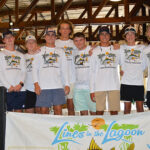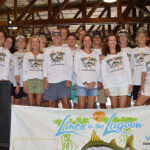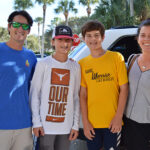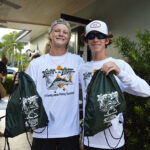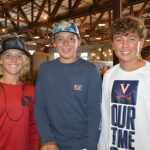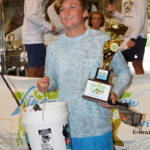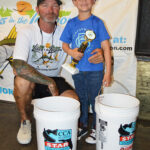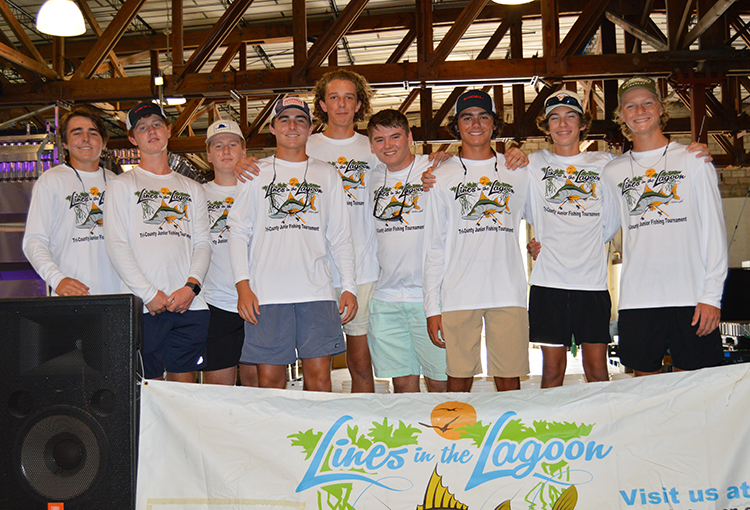
The eighth annual Lines in the Lagoon Tri-County Junior Fishing Tournament measured up once again this year, drawing 142 anglers who reeled in a whopping 368 fish during the recent seven-hour catch and release tournament.
Participants, from kindergarten through 12th grade, had gathered on Friday evening for a captains’ meeting at White’s Tackle, where they geared up in preparation for an early day on the lagoon. Bright and early Saturday morning, they fished by boat and on land, and submitted digital photographs of their catches before offering the fish back to the lagoon.
After a long and satisfying day on the water, the fishing fanatics met at Walking Tree Brewery, which donated a portion of beer proceeds, for an awards ceremony and to celebrate a job well done. While youngsters dined and played yard games, their parents bid on a variety of auction items and purchased raffle tickets for a highly desired Dragonfly paddleboard.
The event is organized annually by a group of environmentally conscious teens and their families to raise awareness about the ecological health of the Indian River Lagoon. Their hope is to develop stewards of the environment at an early age, who will continue to keep our waterways clean and safe for future generations.
Proceeds from the tournament support the Ocean Research & Conservation Association’s Citizen Scientist Fish Monitoring program and the Coastal Conservation Association’s Florida Star youth fishing programs, explained Edie Collins, board president.
Additionally, the nonprofit helps fund research designed to assess the causes of the diminishing fish populations, and studies that evaluate factors that are damaging the diverse ecosystems, including habitats, breeding grounds and nurseries.
“There were only two trout caught this year during the tournament. We have three prizes for trout, so that was really unusual. That indicates that the trout in the Indian River Lagoon are not present,” said Collins. “We’re trying to focus more on the fish habitats and how certain species of fish are being depleted in the Indian River Lagoon.”
Collins said the Indian River Land Trust is working alongside Coastal Conservation to assess how mosquito impoundments – diked areas of salt marshes or mangrove forests that control water levels to mitigate mosquito breeding – might be affecting areas where the fish are eating.
Young adult committee members of Lines in the Lagoon will once again drop their lines to assist ORCA by catching fish to assist that nonprofit’s research efforts. Fish that are caught will be measured and studied to determine the health of individual species and the ecosystem that supports them. The ecosystem of the 181-mile Indian River Lagoon is considered “the most bio-diverse habitat in North America,” and provides a varied habitat to 4,000 plant and animal species.
For more information, visit linesinthelagoon.com.
Photos provided



